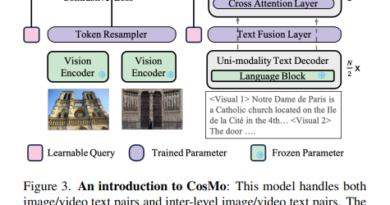Enhancing Accountability and Trust: Meet the ‘AI Foundation Model Transparency Act
AI’s integration into numerous industries has sparked concerns about the lack of transparency in how these models are trained and the data they rely on. The opacity surrounding AI systems has resulted in biased, inaccurate, and unreliable outcomes, particularly in critical sectors such as healthcare, cybersecurity, elections, and finance. In response to this pressing need for transparency, lawmakers have introduced the AI Foundation Model Transparency Act. This groundbreaking legislation aims to establish accountability and trust by mandating comprehensive reporting and disclosure of vital information by creators of foundation models.
The Need for Transparency
As AI models become increasingly prevalent and influential, there is a growing demand for transparency to ensure that these models produce fair, unbiased, and reliable results. Without insights into the training process and the data used, it becomes challenging to identify and address potential biases, inaccuracies, or ethical concerns. Transparency is vital for building trust in AI systems and enabling informed decision-making in fields that rely heavily on AI technologies.
Introducing the AI Foundation Model Transparency Act
To address the need for transparency, the AI Foundation Model Transparency Act proposes a set of regulations that require companies developing foundation models to disclose crucial information related to their models’ training data, operations, limitations, and alignment with established AI risk management frameworks.
- Clear Reporting Standards: The Act directs regulatory bodies such as the Federal Trade Commission (FTC) and the National Institute of Standards and Technology (NIST) to collaborate in setting clear rules for reporting transparency in training data. This ensures that there are consistent guidelines for disclosure across different AI models and industries.
- Disclosure of Training Data Sources: Companies creating foundation models would be obligated to disclose the sources of their training data. This transparency enables users to evaluate the quality and diversity of the data used to train the model, thereby identifying any potential biases or inaccuracies 1.
- Retention of Data during Inference: In addition to divulging the training data sources, developers would also need to provide information on how the data is retained during the inference process. Understanding how the model uses and retains data is crucial for validating its outputs and ensuring privacy and security 2.
- Mitigation of Copyright Infringement: The bill recognizes the importance of transparency concerning training data with regards to copyright concerns. Creators of foundation models would be required to disclose complete information about the training data sources to prevent potential copyright infringement issues. This provision helps copyright holders safeguard their intellectual property rights 3.
- Alignment with AI Risk Management Frameworks: The Act mandates that companies disclose the limitations and risks associated with their models, as well as their alignment with established AI Risk Management Frameworks. This ensures that users have a comprehensive understanding of the potential limitations and risks associated with deploying these models in critical applications 2.
- Computational Power Disclosure: Developers would also need to disclose the computational power used to train and operate the AI model. This information provides transparency regarding the resources required and the environmental impact of training and deploying these models 1.
Fostering Accountability and Trust
The AI Foundation Model Transparency Act seeks to address concerns related to biases, inaccuracies, and copyright infringements by mandating detailed reporting of training data and operational aspects of foundation models. By establishing federal rules for transparency requirements, the act fosters responsible and ethical use of AI technology, ultimately benefiting society as a whole.
Ensuring Accuracy and Reliability
One crucial aspect of the proposed legislation is the requirement for AI developers to report efforts to test their models against providing inaccurate or harmful information. This provision ensures that the models are designed to deliver reliable outputs, particularly in sectors such as healthcare, finance, and education, where the consequences of misinformation can be severe 4.
Preventing Unauthorized Use of Copyrighted Content
The Act’s emphasis on transparency regarding training data sources also aims to prevent unauthorized use of copyrighted content. By requiring comprehensive reporting and disclosure, potential copyright infringement issues can be mitigated, protecting the rights of copyright holders 3.
Strengthening Public Trust
The AI Foundation Model Transparency Act significantly enhances public trust in the AI systems deployed in various industries. As AI models become more intertwined with our daily lives, it is essential to establish guidelines that promote fairness, accountability, and transparency. Users can make more informed decisions when they are aware of the data sources, limitations, and potential biases associated with the AI models they interact with 5.
Conclusion
The AI Foundation Model Transparency Act represents a significant step forward in ensuring accountability and trust in AI systems. By mandating comprehensive reporting and disclosure of training data and operational aspects of foundation models, this legislation addresses concerns related to biases, inaccuracies, and copyright infringements. If passed into law, the Act will establish federal rules that require transparency requirements for AI models’ training data, fostering responsible and ethical use of AI technology for the benefit of society as a whole.
In an increasingly AI-driven world, transparency is crucial for fostering trust, mitigating biases, and ensuring the responsible development and deployment of AI systems. The AI Foundation Model Transparency Act takes us one step closer to achieving these goals, paving the way for a more transparent and accountable AI ecosystem.




